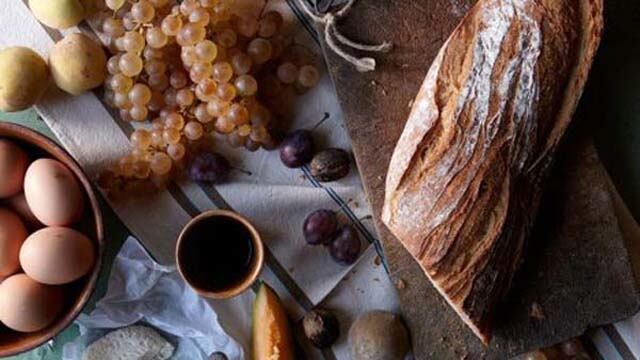
by Michael Ruhlman
The chef wasn’t happy, and he was unhappy in the way only a French chef can be. I didn't blame him. In my clumsy French, I'd asked him if he might bring us a bottle of wine and pointed to where my wife, Donna, was laying out a picnic overlooking the sunflowers of southwestern France. His expression said it all: Why are these guests at my château not ordering my food? But when he grudgingly appeared with bottle in hand, he did a double take—"Ooh!"—pushed out his lips, and nodded. He'd seen our lunch of dry-cured magret (duck breast) with a goodly layer of fat, a second duck breast wrapped around a huge chunk of foie gras, two hefty cheeses, a loaf of country bread, olives, nuts, tomatoes, and nectarines. At least the Americans know how to eat in Gascony, his smile seemed to say.

It had been a hellish travel day that began with a manic zigzag through Italian traffic to the Genoa airport, a dash through Charles de Gaulle, just making our connecting flight to Toulouse, and then ninety minutes on the autoroute. To find ourselves, then, suddenly in the lush fields and forests of rural France had felt like falling into a cool pool after a long hot day. The winding, sloping roads had been a pleasure to navigate, the air perfumed with onions growing by the roadside. It had been a pleasure even to be slowed by one of the many tractors hauling hay—all the more time to take in the endless fields of sunflowers, their backs to the late-afternoon sun. We'd rolled beneath an arbor tunnel to our destination, the Château de Lassalle, a country house surrounded by pastures of cut hay, everything glowing yellow and gold and green. Already I was in love with this rugged land called Gascony.
I'd come forewarned. Ariane Daguin, who runs the New Jersey-based food company D'Artagnan, is a true Gascon, a hearty woman who trades in the products of her land—duck cooked in duck fat, sausages, foie gras. She had told me, "Gascony is the best region in the world, period. The quality of life, the weather, the beauty of the country. People say, 'Oh, Tuscany, Tuscany.' They have never been to Gascony."
Donna and I had just come from Tuscany, and now we understood precisely what Daguin meant. Our picnic lunch had been provided by Kate Hill, who runs a cooking school called the Kitchen at Camont, in Ste-Colombe-en-Bruilhois, a thirty-minute drive from our château. "It's Sunday," she'd announced. "Nothing will be open, so I've brought you a picnic. And a bottle of Floc!" The Floc de Gascogne, an aperitif made from local grapes and fortified with Armagnac, was sweetly refreshing, the perfect elixir after a gritty trek across southern Europe.

Kate Hill is an American expat and one of the reasons I had determined to find my way to Gascony. In the early 1980s, she and a lover had traveled to Amsterdam; together they'd bought an eighty-five-foot barge and floated it down canals, transporting tourists, until the barge broke down in Agen, a small city on the Garonne River between Bordeaux and Toulouse. The lover left, but Kate stayed. "Gascony!" she said. "The Three Musketeers! Rugby! Armagnac! Duck! Nothing is subtle here."
Kate is a big woman in every way. And from the standpoint of culinary knowledge and her generosity in sharing it, she's Julia big. Her friends often stay on the barge, while her employees occupy the 1970s-era trailers that dot the overgrown property, surrounded by roosters crowing, quail cooing, fruit ripe on tree branches. And it was Kate who'd brought a butcher named Dominique Chapolard to an International Association of Culinary Professionals gathering in Portland, Oregon, that I'd attended two years previously, to promote what she calls seed-to-table eating.
Chapolard speaks little English, so Kate had translated to the packed Portland kitchen as he broke down half a hog in his fashion, more elegant and thoughtful than the American method. Indeed, his whole being—the giant mustache, the mellifluous French, the way he caressed the animal—so clearly exuded a care for our food and animals that I rarely encounter in America. I was ready to pack my bags right then.





